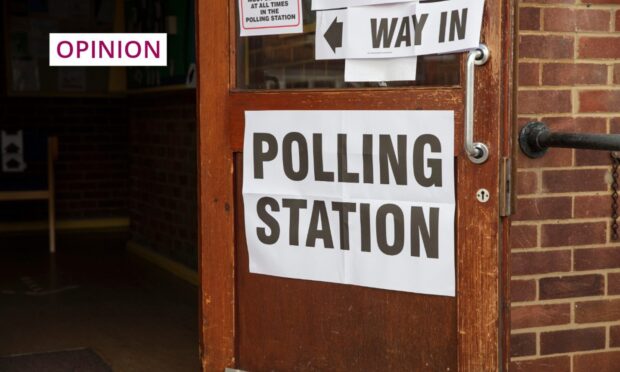Scotland’s dormant network of community councils could be at risk of becoming a platform for the far-right to gain legitimacy.
Unpaid, unfunded and undervalued, members are mostly likely to be found organising community events such as galas and remembrance parades or providing feedback on controversial planning applications.
But in many communities, the groups have fallen dormant as they struggle to attract volunteers with the time to spare who are willing to put themselves forward for election.
Now, an anti-racism charity has warned how far-right groups could be targeting them.
We reported this week how Jamie Brown, chairman of the recently-revived Invergowrie and Kingoodie Community Council, was once an activist for the white-nationalist group Patriotic Alternative and stands accused of using racial slurs online.
Charity’s warning
And this isn’t an outlier. Anti-racism charity Hope Not Hate have warned that far-right groups have targeted community councils across UK.
In Invergowrie, Mr Brown is a member of the Homeland Party – a group monitored by Hope Not Hate who say their strategy is to “hide their views” and work their way into community politics.
After registering as a political party it has draped itself in a cloak of responsibility, but its membership list is made up of members who were formerly associated with groups like the extreme far-right Patriotic Alternative.
The vast majority of community councillors do important work, but in a handful of areas we’ve seen how the far-right have co-opted dormant groups with little challenge.
In the House of Commons on Thursday, Communities Secretary Michael Gove used parliamentary privilege to say the government was concerned Patriotic Alternative promotes “neo-Nazi ideology”.
This focus on community politics provides the far-right, who Scots have rejected consistently at the ballot box, to reap the benefits they are denied from failing to secure support in higher profile elections.
The lowest-level of elected government, and run entirely by volunteers, community council members can be a huge asset to their local area.
But the far-right have discovered the wider benefits they gain from appearing to show attention to these unloved groups.
They have transformed them into an invaluable platform which provides legitimacy.
Members are elected and as such can be seen as a representative of those they serve.
They can campaign on local issues such as bus cuts thus building their profile and increasing their chances of a successful run for higher office.
Scots must guard against hate
Crucially, the elections for the positions often have a small turnout, and the apolitical nature of the position means candidates are unlikely to face any scrutiny of their political ideology.
Unpaid and unfunded, it is no surprise many of these groups have fallen into disuse in communities.
Just as it has been rejected at the ballot box, Scots cannot allow their local community groups to become a hotbed of hate.











Conversation